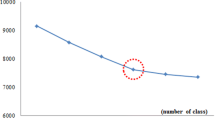Abstract
This study explores the impact of positive, negative and neutral emotion induction procedures on Chinese adult e-learners’ language learning. Thirty students from each of the three groups were selected as the subjects, with each group receiving one of the three treatments. The subjects attended some online lecturing sessions on English tenses and were assigned a pretest and a posttest. Data were also collected through simultaneous recording of the lecturing. The results of the posttest show that the positive treatment can generate the most facilitating impact on learning, the neutral one can also facilitate learning but not as much as the positive one, and the negative one may hinder learning.
Access this chapter
Tax calculation will be finalised at checkout
Purchases are for personal use only
Similar content being viewed by others
References
Erez, A., Isen, A.M.: The influence of positive affect on the components of expectancy motivation. J. Appl. Psychol. 87, 1055–1067 (2002)
O’Regan, K.: Emotion and e-learning. J. Asynchronous Learn. Netw. 7, 78–92 (2003)
Seibert, P.S., Ellis, H.C.: Irrelevant thoughts, emotional mood states and cognitive task performance. Mem. Cogn. 19, 507–513 (1991)
Oaksford, M., Morris, F., Grainger, B., Williams, J.M.G.: Mood, reasoning, and central executive process. J. Exp. Psychol. Lean. Mem. Cogn. 22, 476–492 (1996)
Um, E.R., Song, H., Plass, J.: The effect of positive emotions on multimedia learning. In: Montgomerie, C., Seale, J. (eds.) Proceedings of World Conference on Educational Multimedia, Hypermedia and Telecommunications, pp. 4176–4185. Chesapeake, AACE, VA (2007)
Brand, S., Reimer, T., Opwis, K.: How do we learn in a negative mood? effects of a negative mood on transfer and learning. Learn. Instr. 17, 1–16 (2007)
Isen, A.M.: Positive affect and decision making. In: Lewis, M., Haviland-Jones, J.M. (eds.) Handbook of Emotions, 2nd edn., pp. 417–435. Guilford Press, New York (2000)
Craig, S.D., Graesser, A.C., Sullins, J., Gholson, B.: Affect and learning: an exploratory look into the role of affect in learning with AutoTutor. J. Educ. Media 29, 241–250 (2004)
Ghali, R., Frasson, C.: Emotional strategies for vocabulary learning. http://www.iro.umontreal.ca/~frasson/FrassonPub/ICALT-2010-Ghali-Frasson.pdf
Verheyen, C., Goritz, A.S.: Plain texts as an online mood-induction procedure. Soc. Psychol. 40, 6–15 (2009)
Russell, J.A.: A circumplex model of affect. J. Pers. Soc. Psychol. 39, 1161–1178 (1980)
Acknowledgements
This work was supported by the Beijing Higher Education Young Elite Teacher Project under Grant number: YETP0471.
Author information
Authors and Affiliations
Corresponding author
Editor information
Editors and Affiliations
Rights and permissions
Copyright information
© 2015 Springer International Publishing Switzerland
About this paper
Cite this paper
Ge, Z. (2015). Exploring Three Emotion Induction Procedures and Their Effect on E-learners’ Language Learning. In: Huang, DS., Bevilacqua, V., Premaratne, P. (eds) Intelligent Computing Theories and Methodologies. ICIC 2015. Lecture Notes in Computer Science(), vol 9225. Springer, Cham. https://doi.org/10.1007/978-3-319-22180-9_60
Download citation
DOI: https://doi.org/10.1007/978-3-319-22180-9_60
Published:
Publisher Name: Springer, Cham
Print ISBN: 978-3-319-22179-3
Online ISBN: 978-3-319-22180-9
eBook Packages: Computer ScienceComputer Science (R0)




